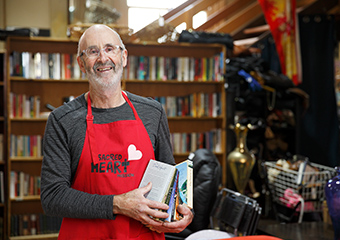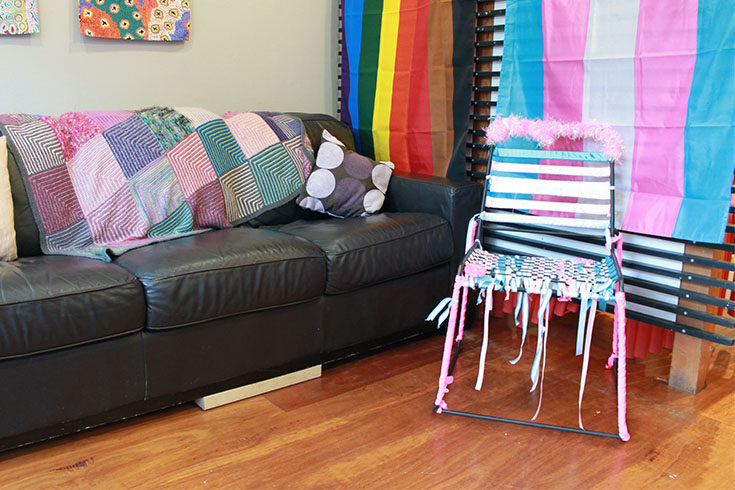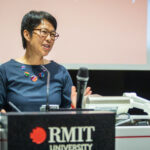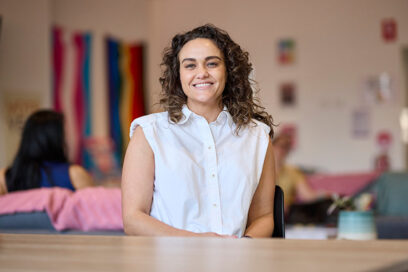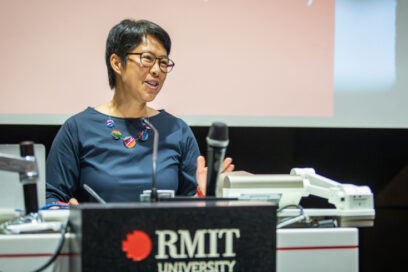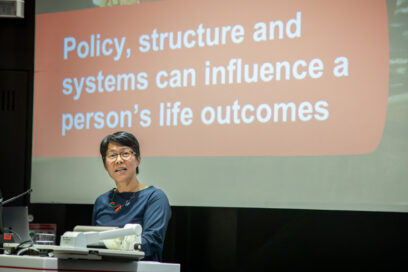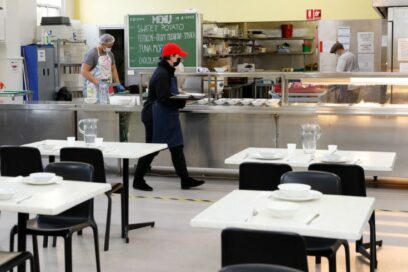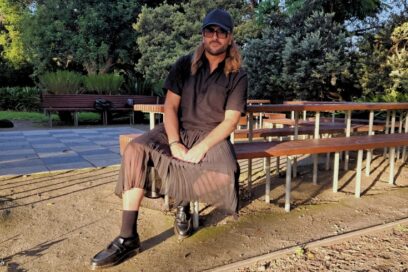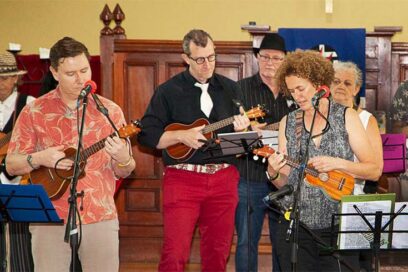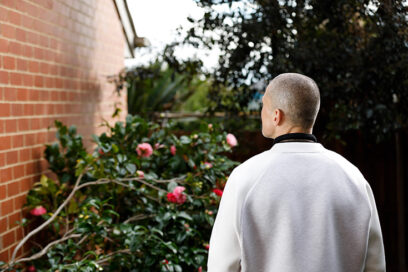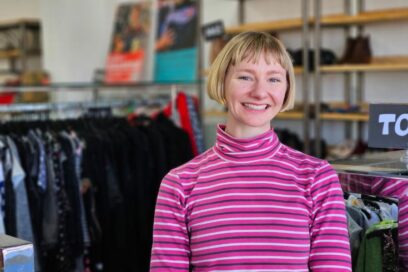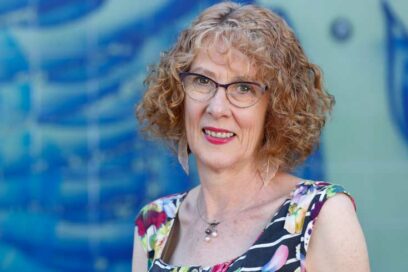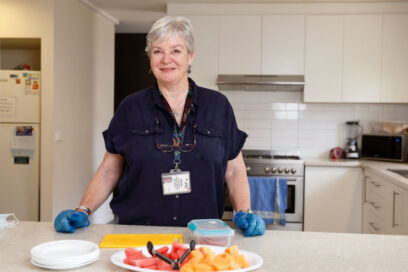Transgender Day of Visibility is an annual and international celebration of Trans pride and awareness, held on 31 March, recognising trans and gender diverse experiences and achievements.
We are sharing a story about Jen, a woman of transgender experience who accessed the Women’s House, and sadly passed away in 2020.
Jen was a character
Women’s House case manager, Julie Quirk knew Jen very well. “Jen was a character,” says Julie. “She had blonde hair that she sometimes wore in pigtails, and loved anything pink, purple and glittery,” she says.
Before the pandemic, the Women’s House would serve breakfast and lunch each day, and Jen would attend one or both mealtimes regularly, and stay at the Women’s House, spending time with other clients and staff.
“Jen had a shopping trolley full of her personal belongings that she would push around the St Kilda area – once, I even saw her with a recliner on top of her trolley,” says Julie. “She was a bit of a bowerbird, she loved collecting, especially shiny things.”
The chair became a running joke …
One day, Julie remembers Jen took an ordinary, metal outdoor chair off her trolley and left it blocking the door at Women’s House.
“I told Jen it couldn’t stay there, so I moved it out of the way of the door and said she needed to take it with her. It became a running joke,” says Julie. “When I saw her, I would remind Jen to take her chair, she would say ‘yeah yeah’ but she never took it, and it sat on the front porch where occasionally others would sit on it, for at least a year.”
Jen was a beloved member of the Women’s House community. Staff were heartbroken when they found out Jen passed away of a heart attack – but were relieved she was cared for in hospital and her death was a peaceful one. A memorial service was held for Jen, celebrating her life and the special person she was.
Remembering Jen
More than a year later, when the Women’s House relocated for construction and Julie visited the Women’s House site to confirm nothing was left behind, she found Jen’s chair still there, by the door.
“It looked lonely outside, and I didn’t want that. I put it in a shopping trolley of my own, channelling Jen and walked it down to the new site. I shared the story with the new Women’s House Coordinator, Katie.”
Katie Lockett remembered Jen from her previous involvement with the City of Port Phillip and wanted Jen to be remembered for the special person she was. The LGBTIQA+ Working Group members decided to decorate the chair in Jen’s memory – in white, blue and pink, the colours of the trans flag. “Jen would have loved the pink tinsel on top!” says Julie.
This was done in connection with Transgender Day of Remembrance, held in November as a commemoration of Jen and other members of the trans community who had passed away in the last year.
Challenges faced by the Trans community*
By the time she passed away, Jen had stable housing but did not always reside there. Like many of our clients, her mental health went up and down.
Research in Australia highlights that LGBTIQA+ communities are over-represented among those with current or recent experiences of homelessness, as well as poorer mental health outcomes.
Experiences of discrimination are key factor, and for young people specifically this is frequently associated with family conflict and rejection because of their sexual orientation or gender identity as a major cause of homelessness.
People who are transgender and gender diverse are therefore highly vulnerable to unemployment and homelessness, often associated with discrimination they experience based on their identity. This occurs across a wide range of aspects of people’s lives – within families and workplaces, by housemates and strangers, within faith communities, clients in services and service providers themselves.
This leads to a sense of hopelessness, as well as significant instances of rough sleeping within the transgender community and places them at further risk of trauma, violence and other harms.
These risks are higher when transgender people are also members of other minority communities – such as being a person of colour, or a person with a disability. We call this way of thinking ‘intersectionality’ – meaning that we consider all aspects of someone’s identity when thinking about how they interact with the world and how discrimination and vulnerability is experienced.
Though service providers are moving towards being inclusive, research has shown that where service providers misgender clients or do not respect their gender identity, this creates barriers to seeking help and means clients do not feel safe.
Celebrate our trans and gender diverse community
As a community, we can do more to combat discrimination and celebrate our trans and gender diverse community members by standing up and speaking out and demonstrating our allyship, ensuring that everyone knows they are loved, and deserve to be treated equally and respectfully.
At Sacred Heart Mission, we are sharing the story of Jen and her chair as a reminder that she has a special place in our hearts. The chair itself is being shared around all the different sites of the organisation, which we hope will be an opportunity to reflect and understand the importance of celebrating our Trans community. It will find its eventual home at Women’s House – where Jen felt most at home.
* McNair R, Andrews, C, Parkinson S & Dempsey D (2017). LGBTQ Homelessness: Risks, Resilience, and Access to Services in Victoria, GALFA LGBTQ Homelessness Research Project Final Report – Melbourne University and Swinburne University
